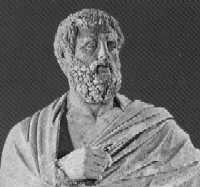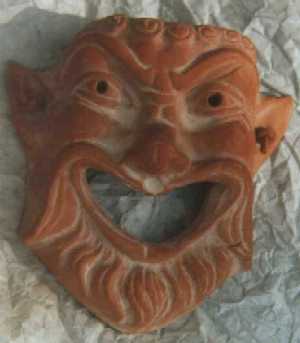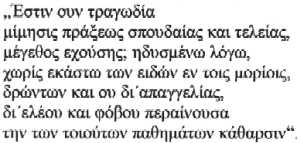The most known tragic poets from whom only some plays have
survived are:
He was born at Eleusis.
He was deeply religious man and in his plays represented the human beings as titanic
figures with capacities that exceeded the human standards.
His survived plays are: Perse, Prometheus in chains, the Eumenides,
the seven at Theva, the suppliant women, Orestes (a trilogy):

Born at Colonus, his contribution to the development of Greek Drama was great. Many were
his innovations such as establishing the presence of a third actor, increasing the number
of members of the chorus from 12 to 15 and improving the stage designs. He was religious
as well and believed in "man creates himself" to the degree that the gods leave
man free to choose and of course to suffer the consequences of his choice, which affects
not only his own fate but also those of his fellow-men.
From his enormous oeuvre of 130 plays, only seven tragedies have survived:
Oedipus at Colonus, Antigone, Oeudipus Rex, Ajax, Women of Trachis, Philoctetes,
Electra.
Born on the island of Salamina, he lived during the golden century of Pericles and
wrote his plays during the Pelopponesian war. He died at Pella of Macedonia while he was
invited by the king Archelaos. As a man, he was characterised as heathen, chauvinist
towards women, lonely and realistic and as a poet "the most tragic among the tragic
poets" and as a philosopher on the scene. His heroes were free, tragic, everyday
human beings, responsible for their fates. He presented his heroes exactly as they were
with all their weeknesses.
Bacchae, Medea, Ifigenia at Taures, Ifigenia at Aulides, Helen, Troades, Andromache,
Orestes, Cyclope, Heracles in rage, Alcestes, Hippolytus, Heraclida, Hecuba, the suppliant women, Ion, Electra, Phoinissai, Ressos.
- ARISTOFANES (445-385 BC) :
He critisized the morality of his epoque, and the political situation.
He wrote comedies such as Lysistrates, the clouds (against Socrates), the birds etc.





